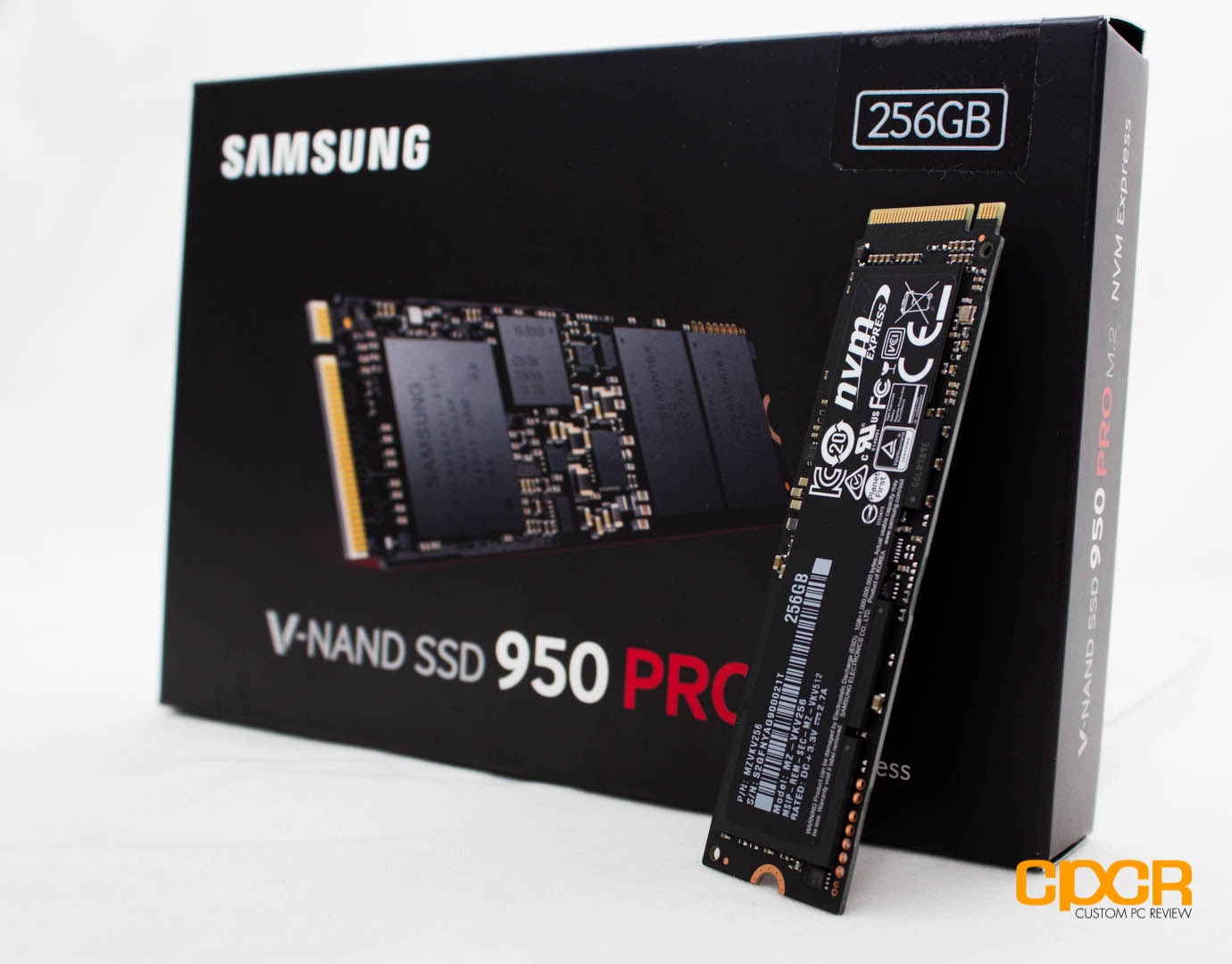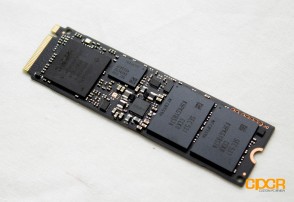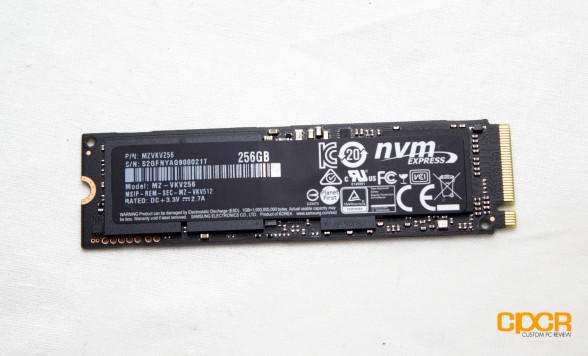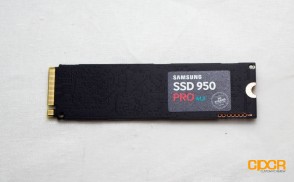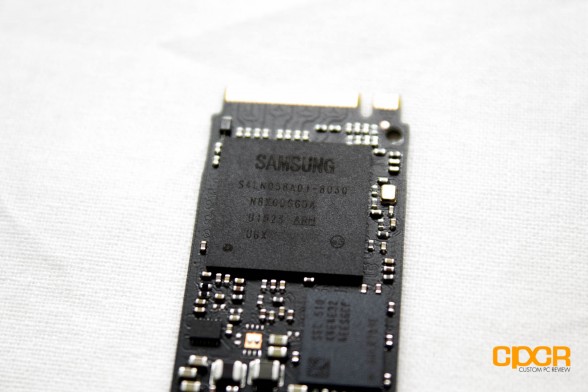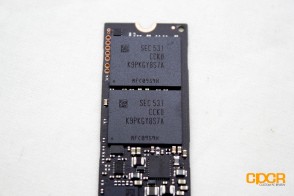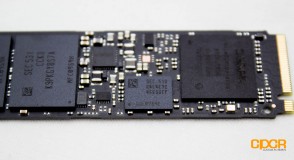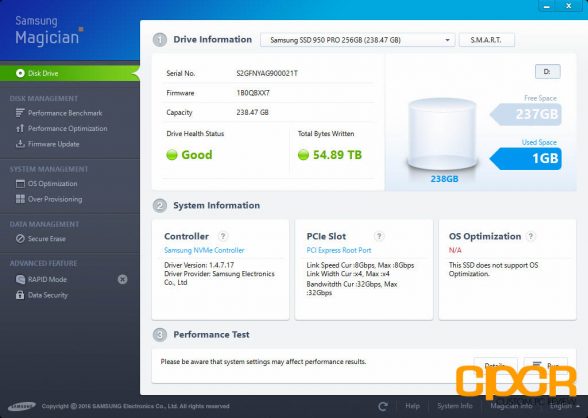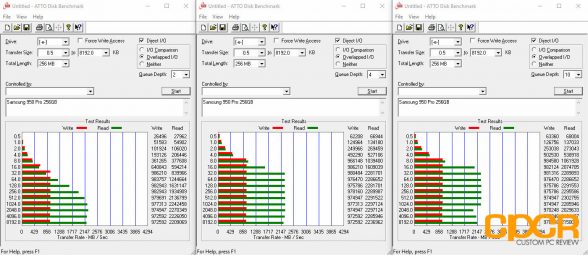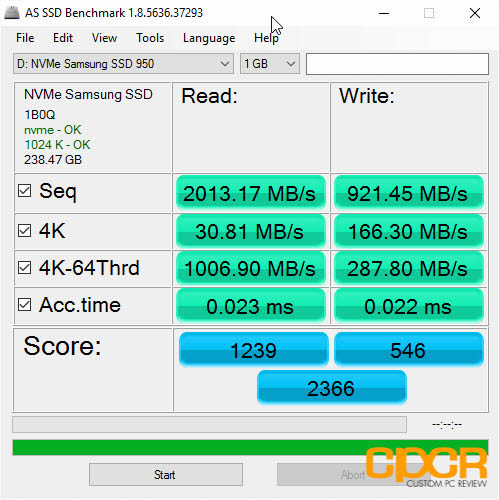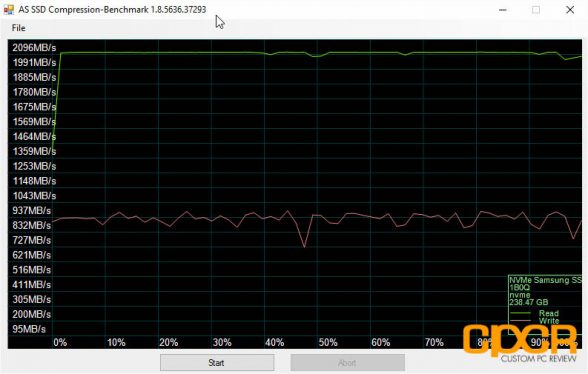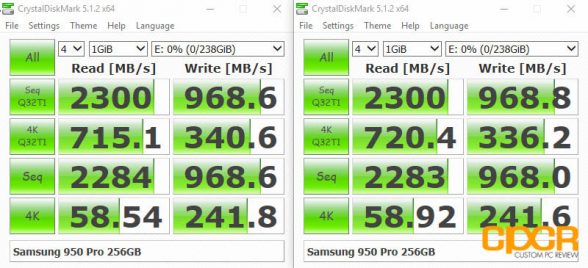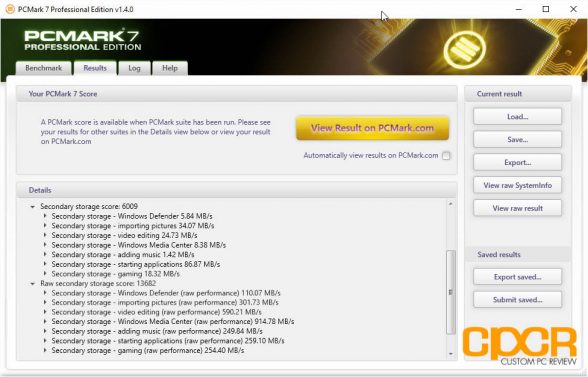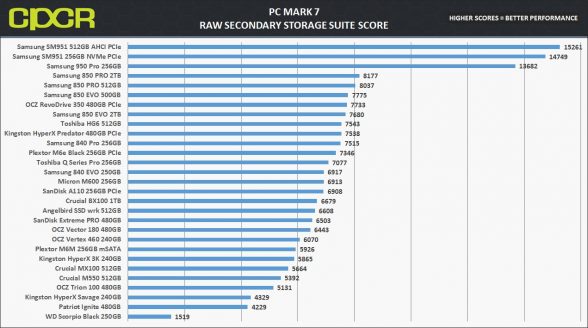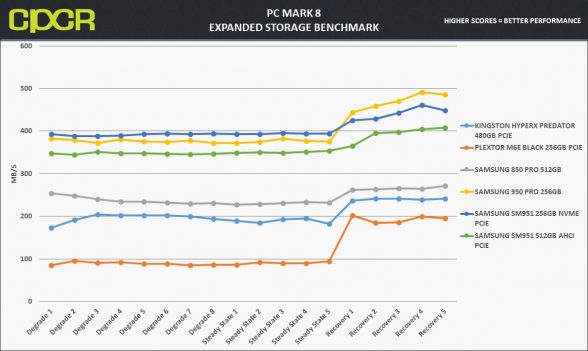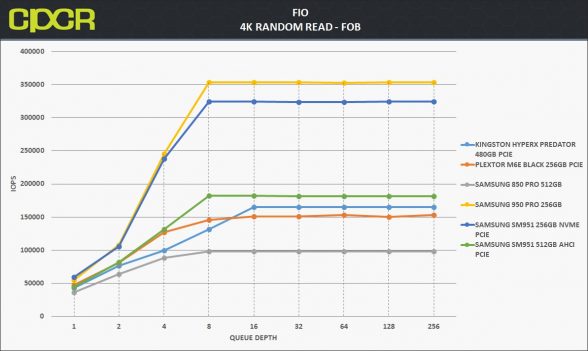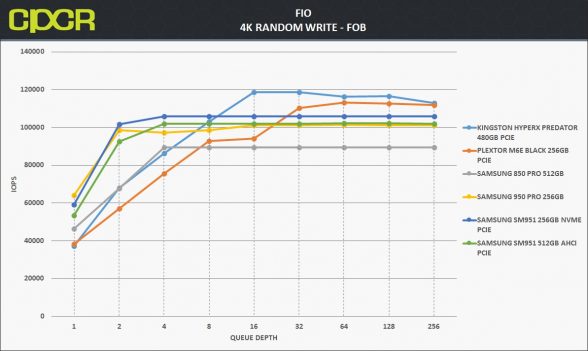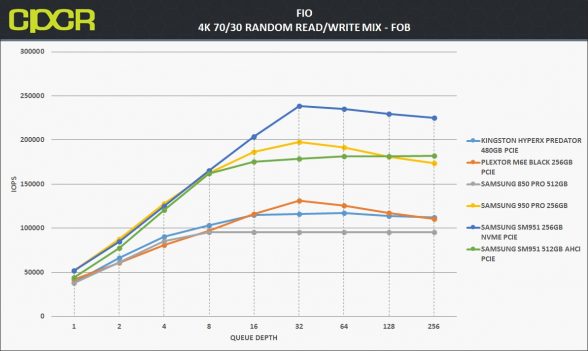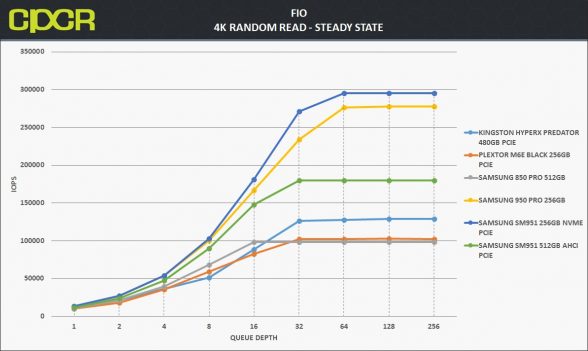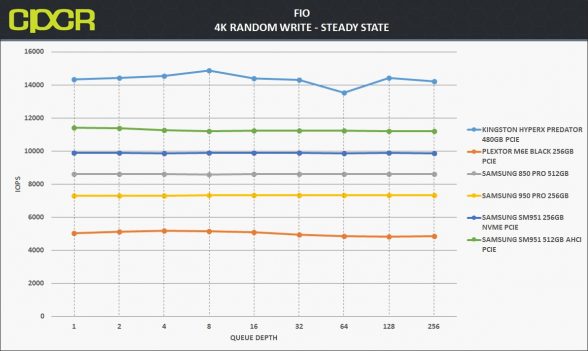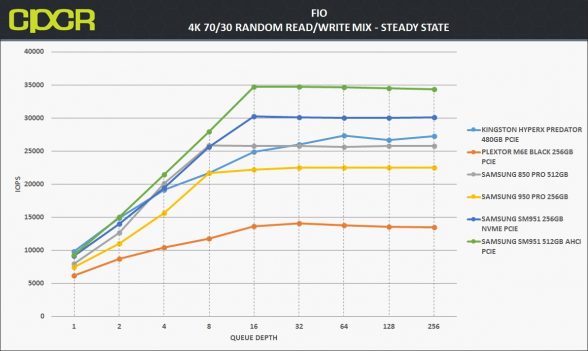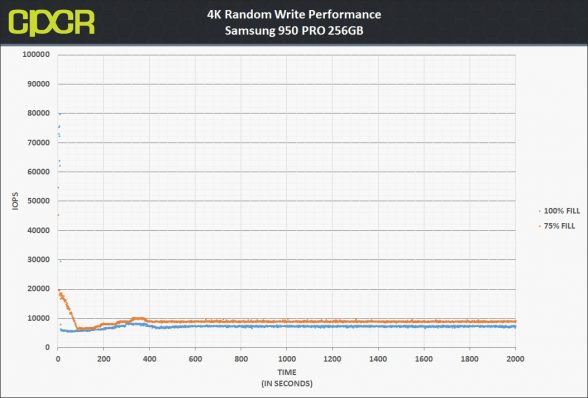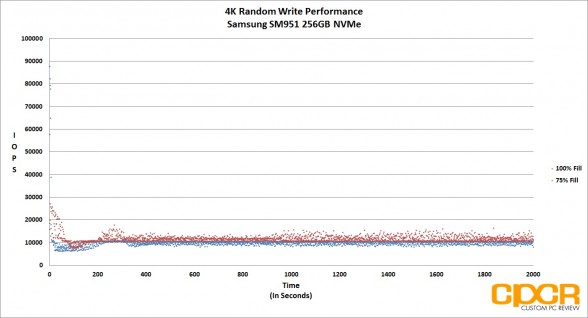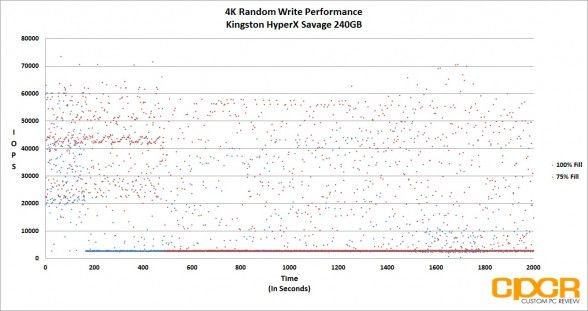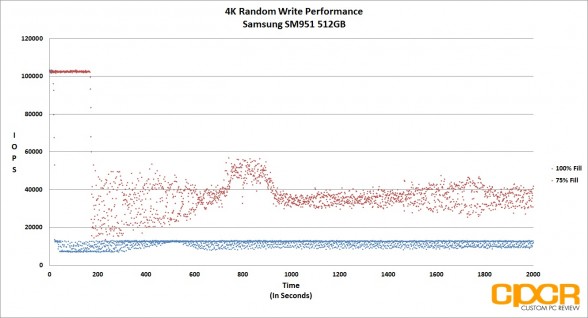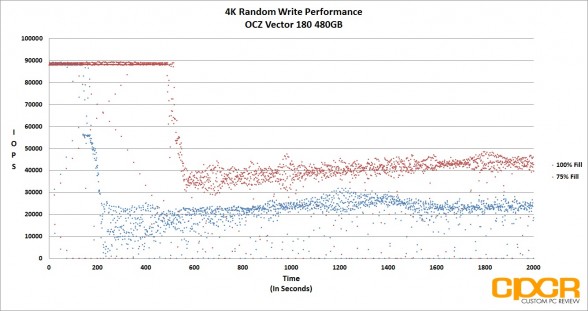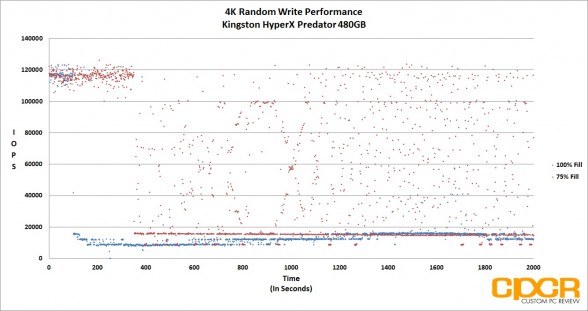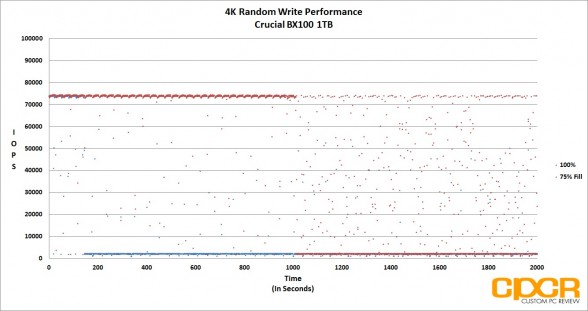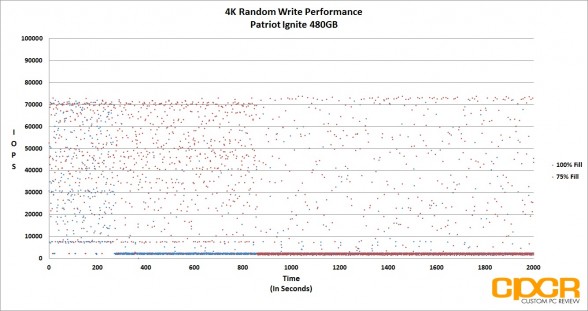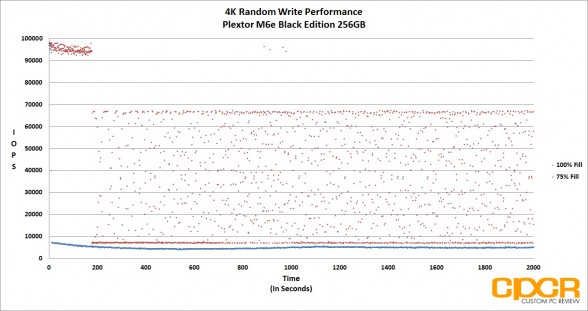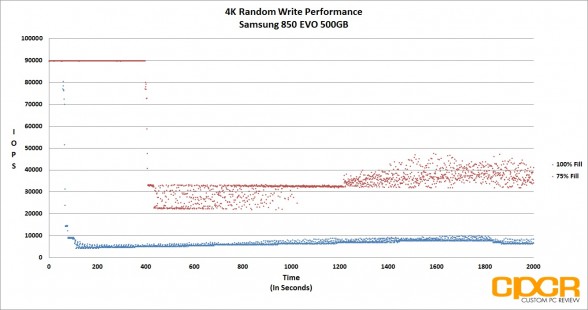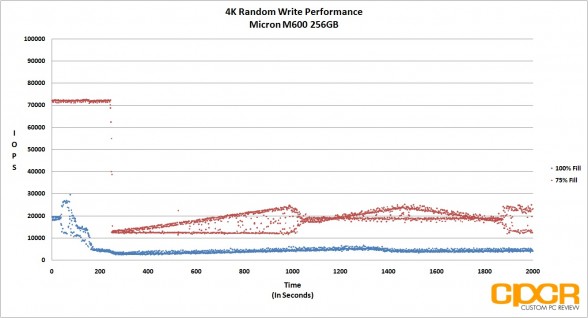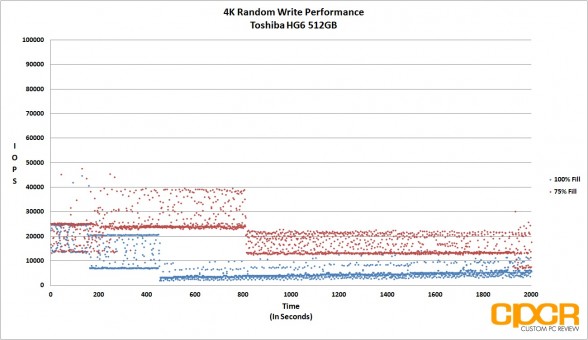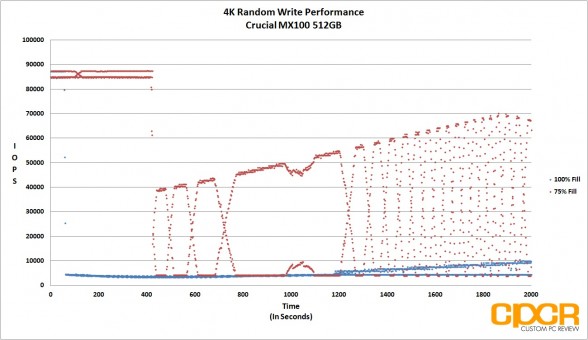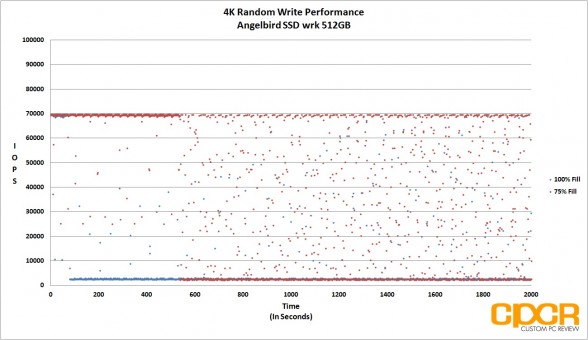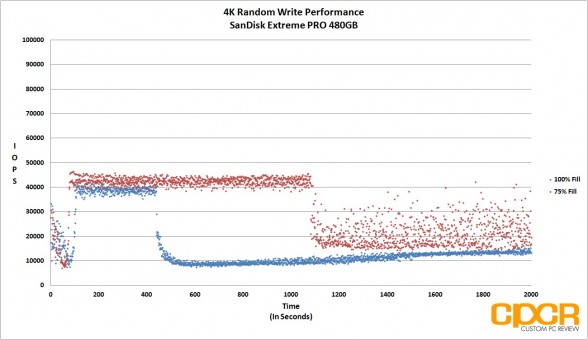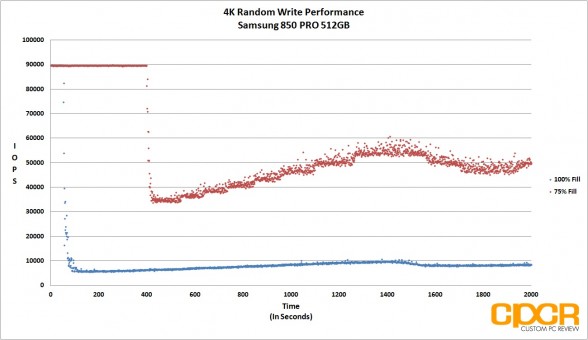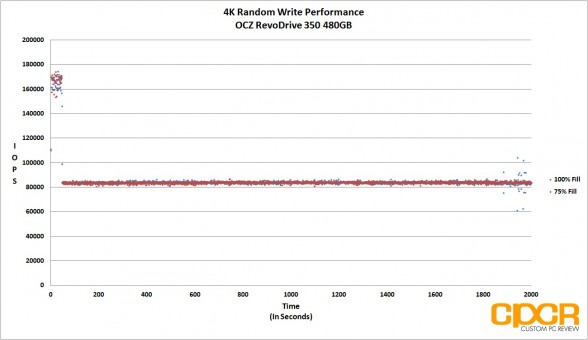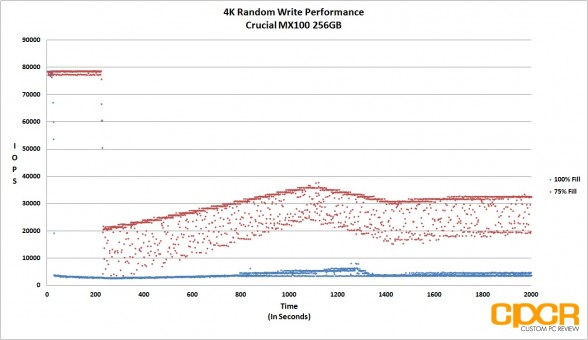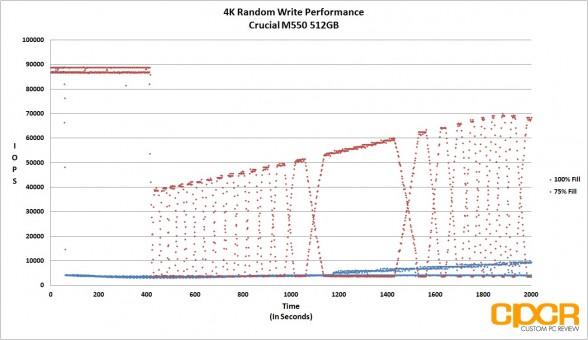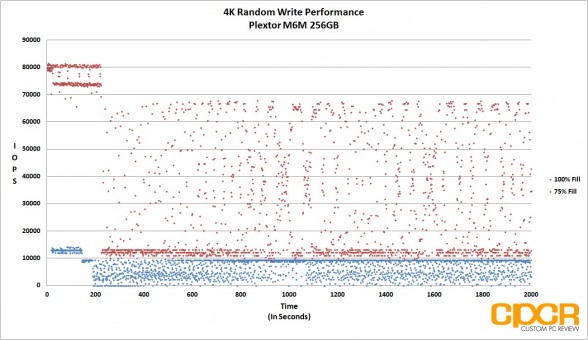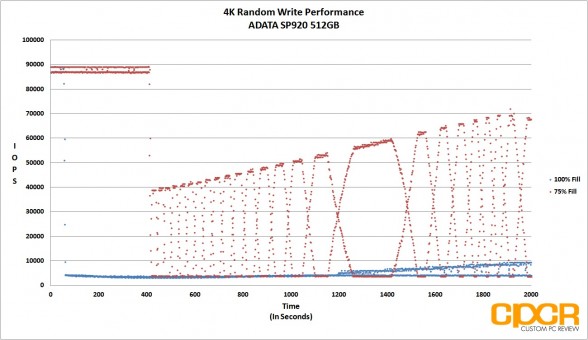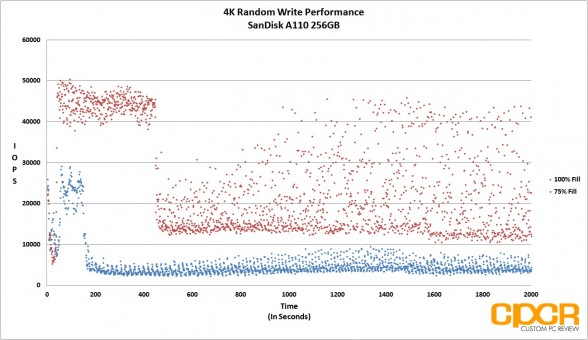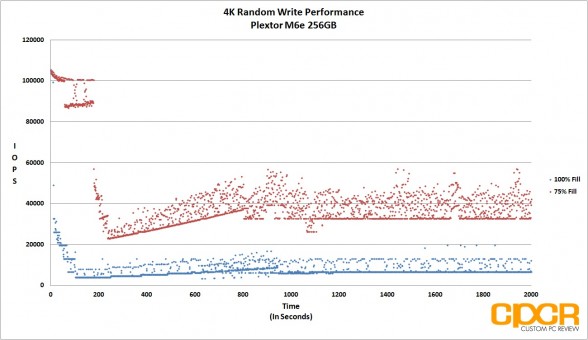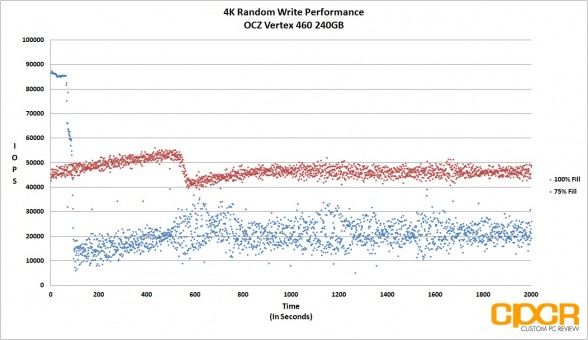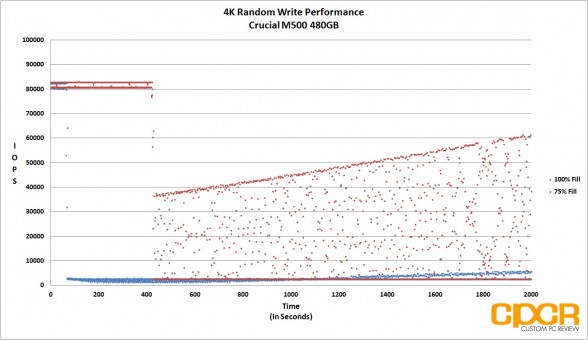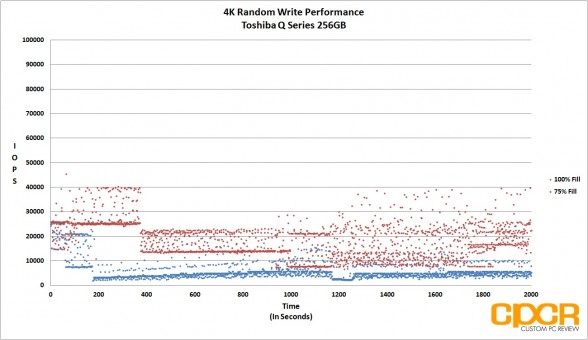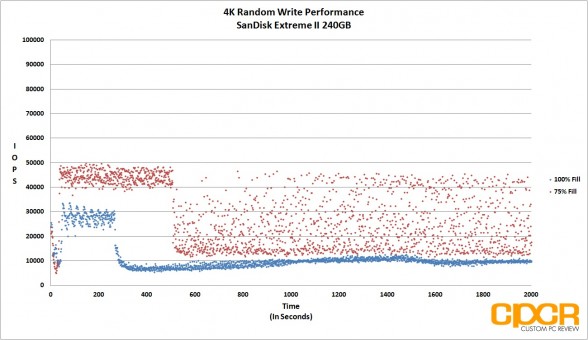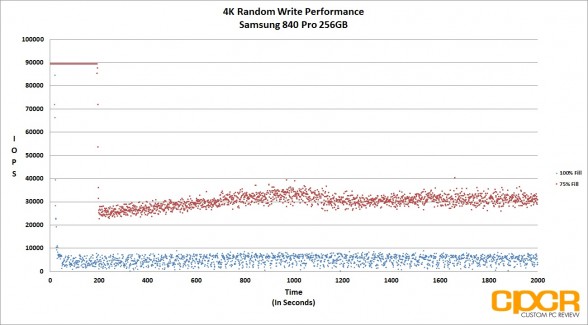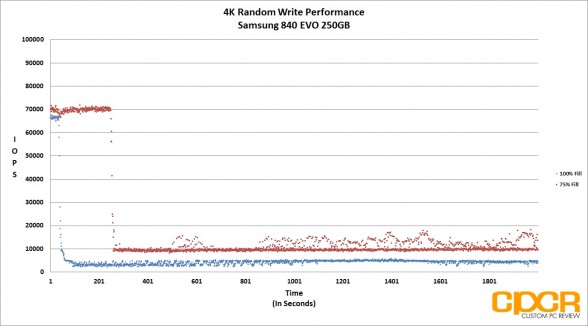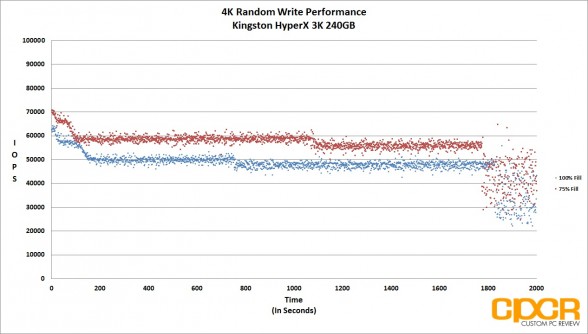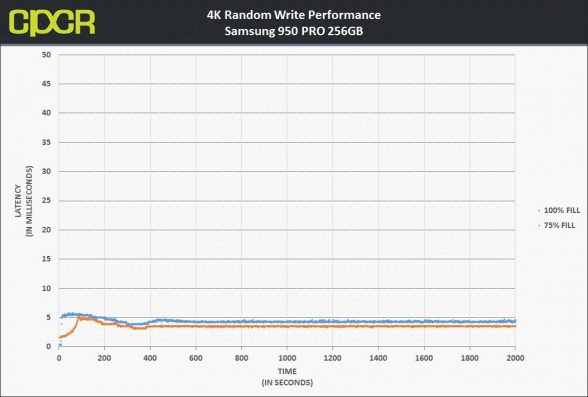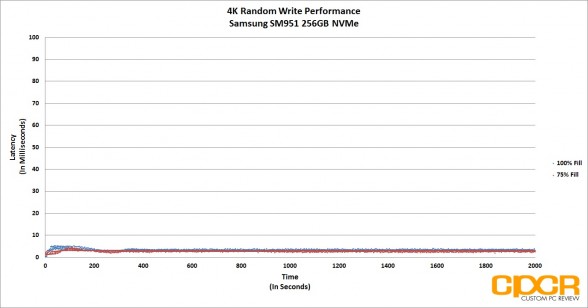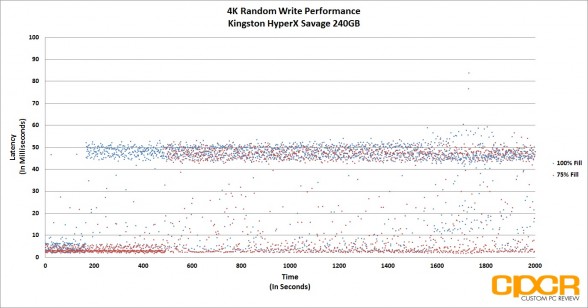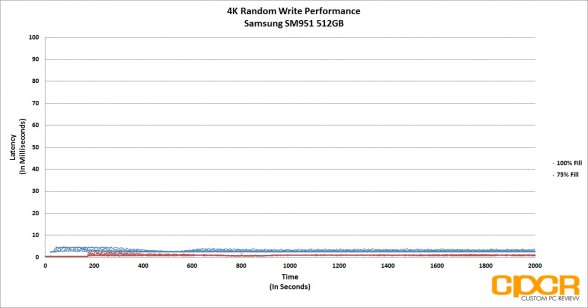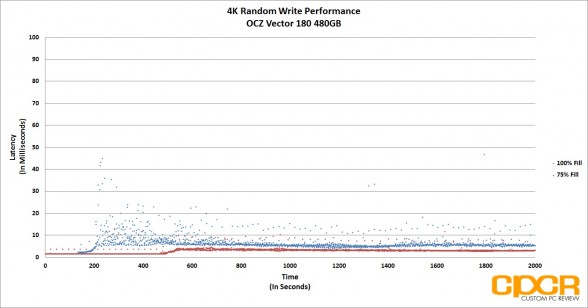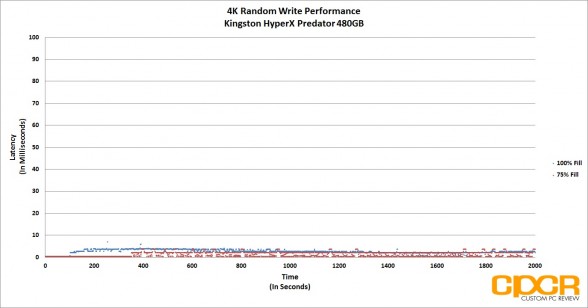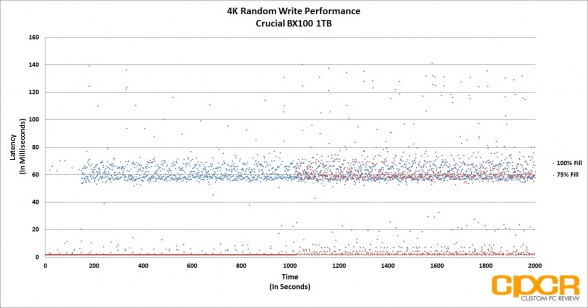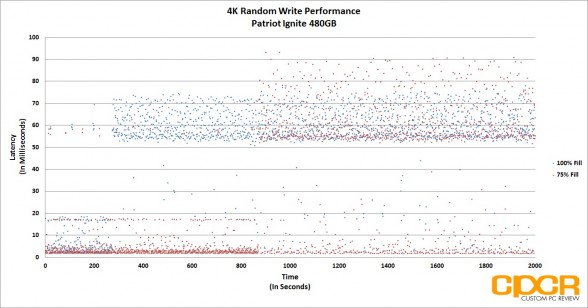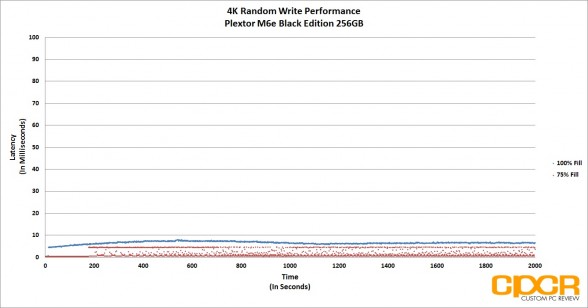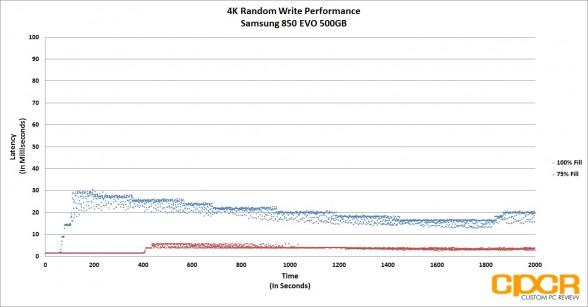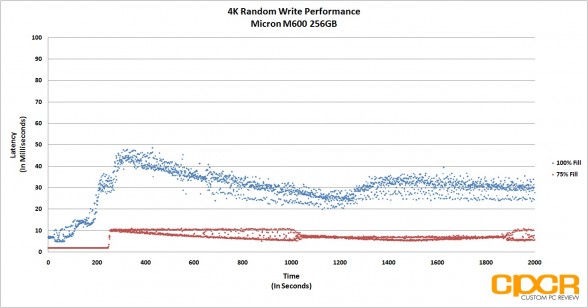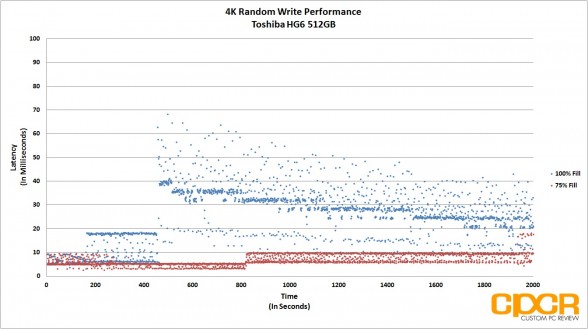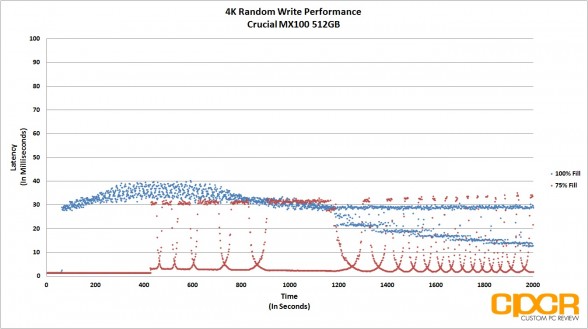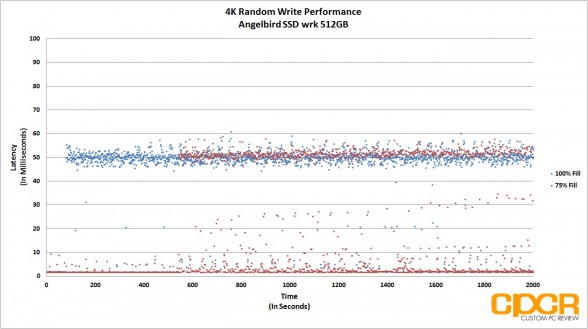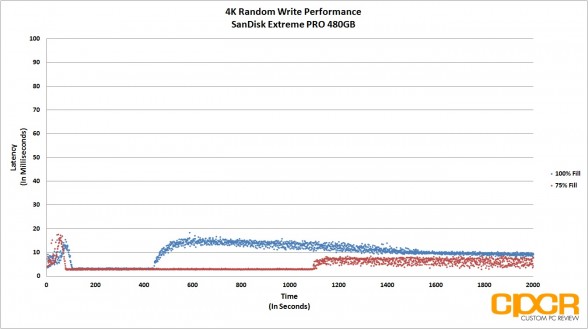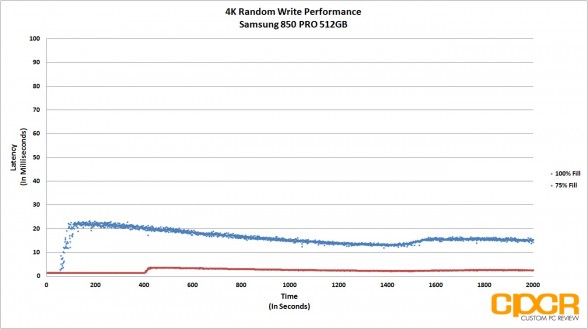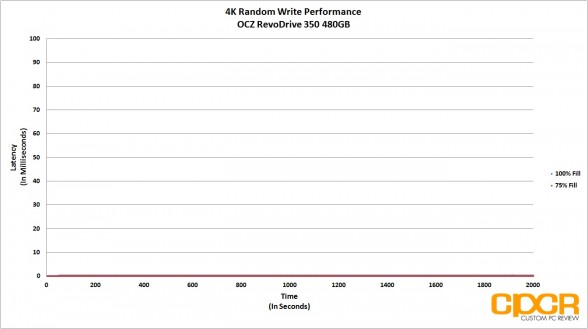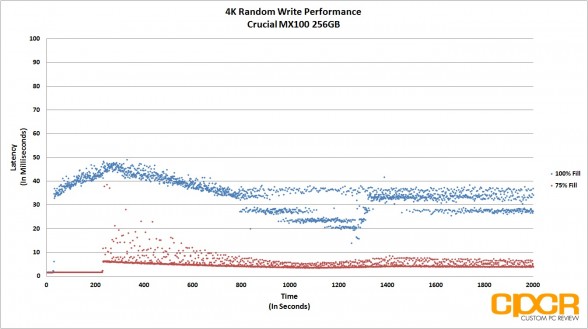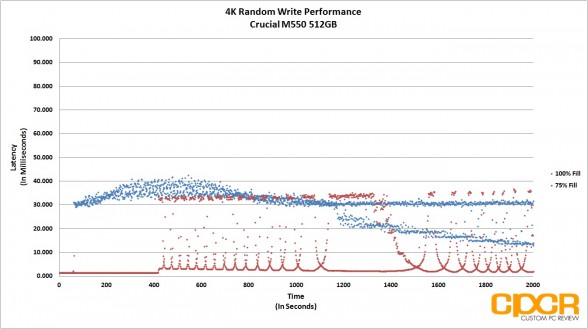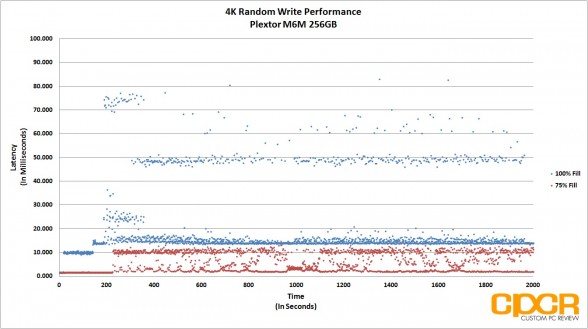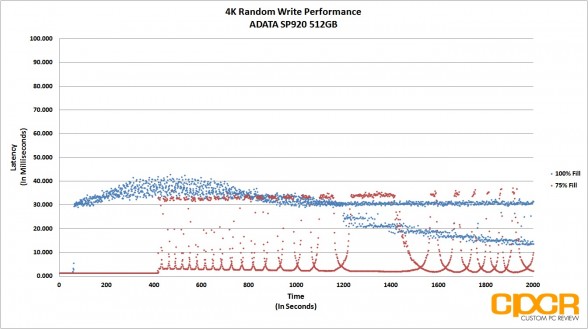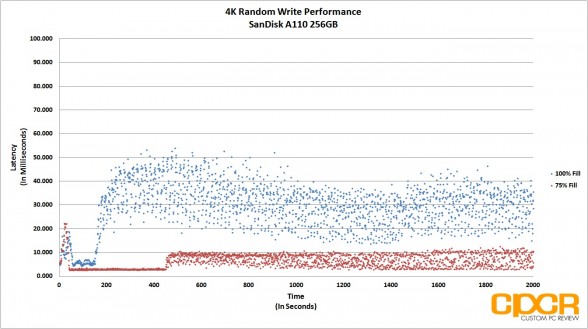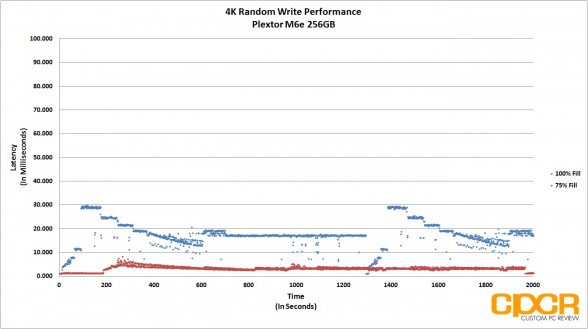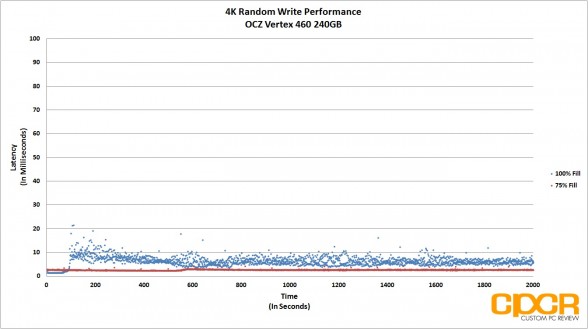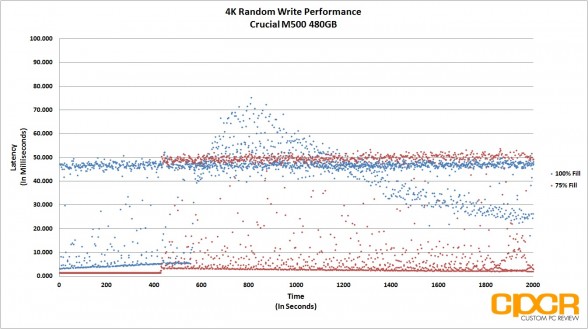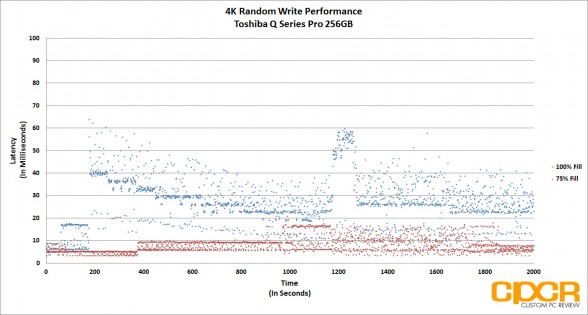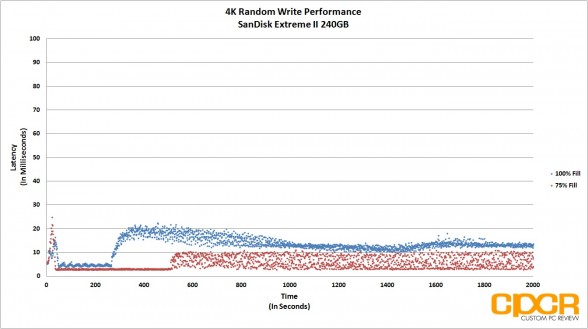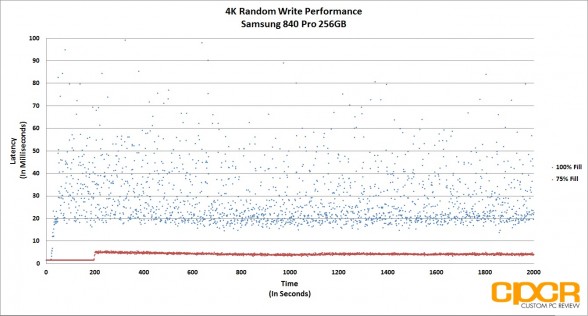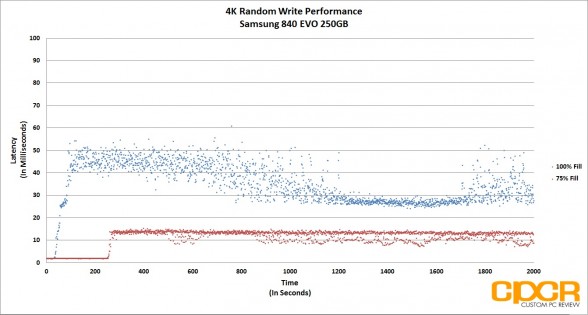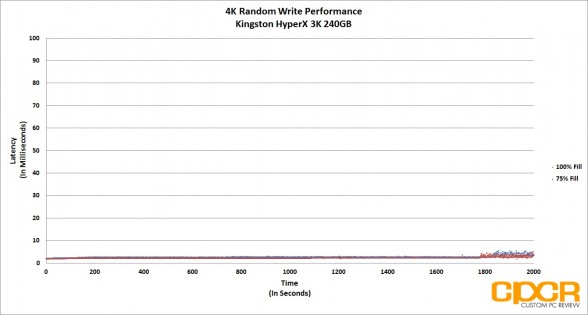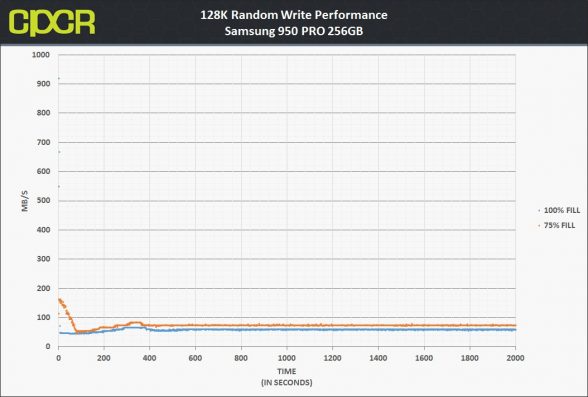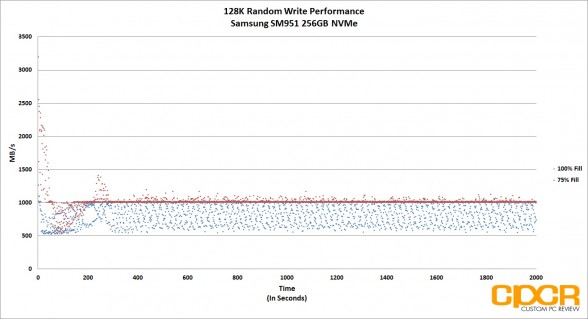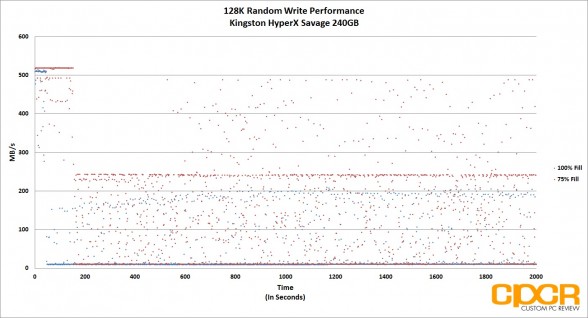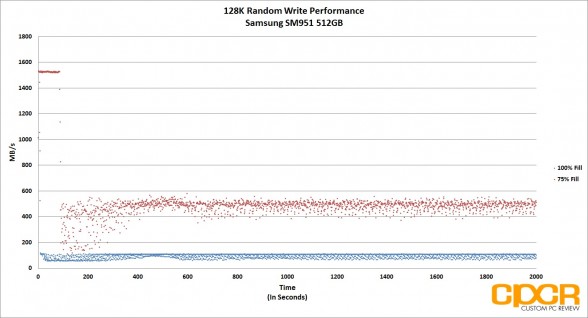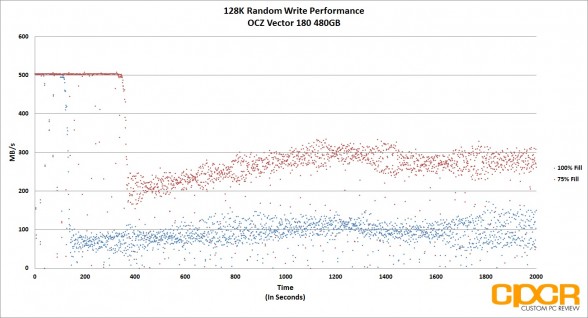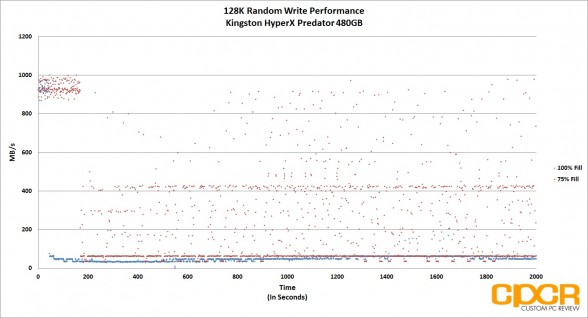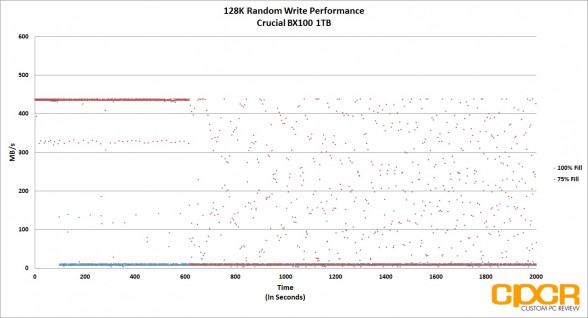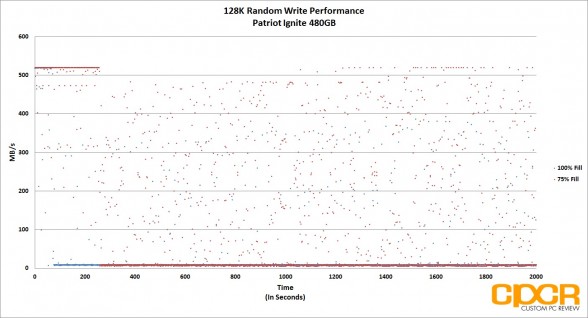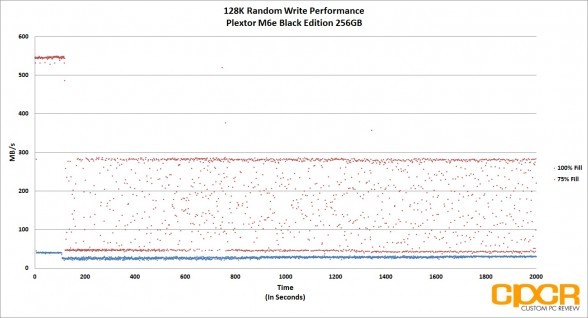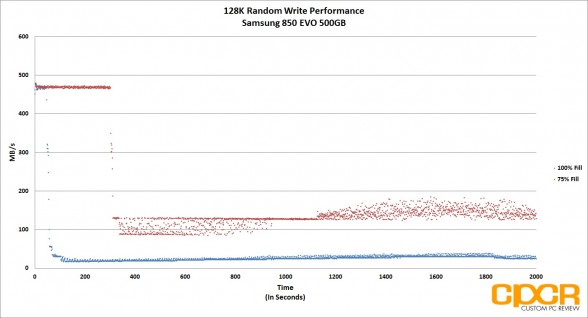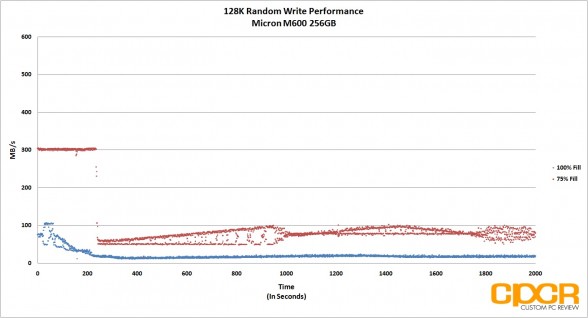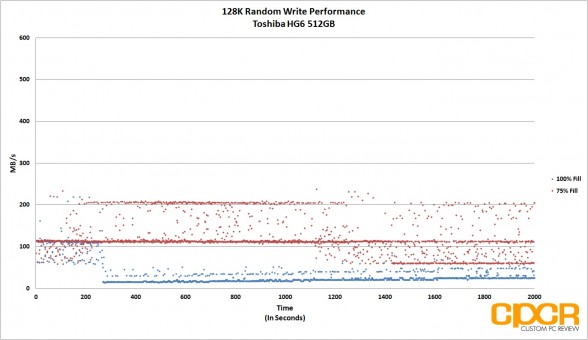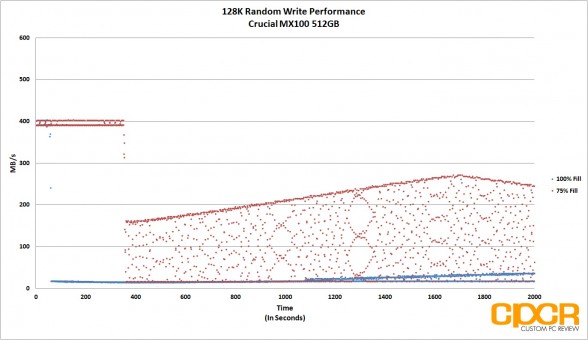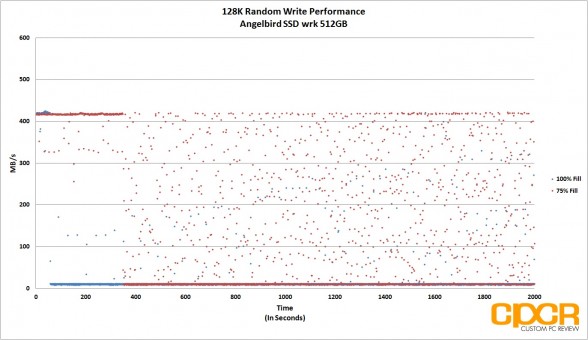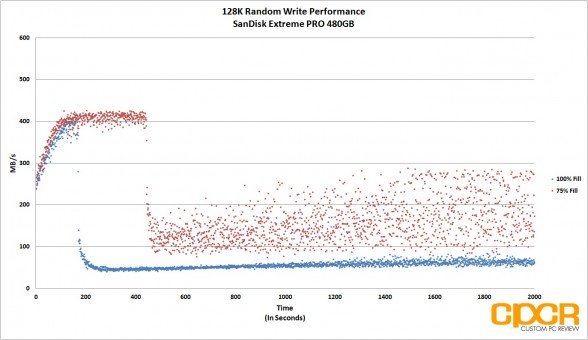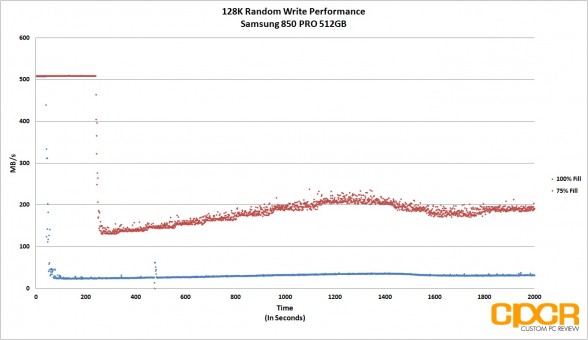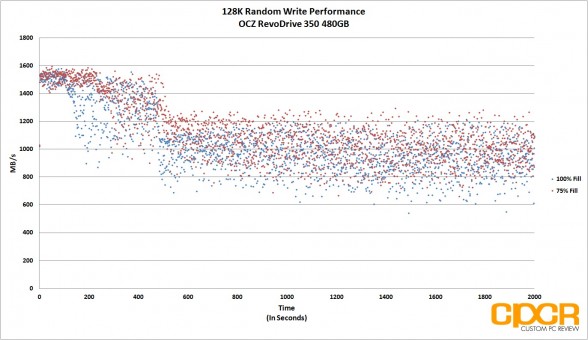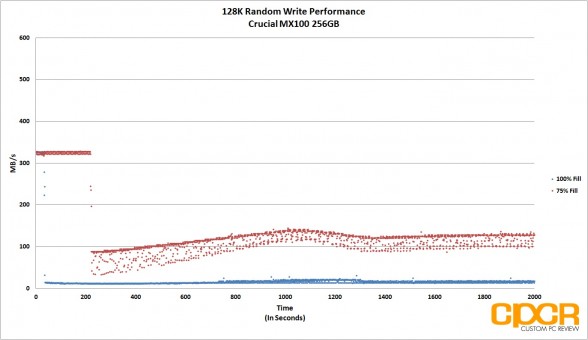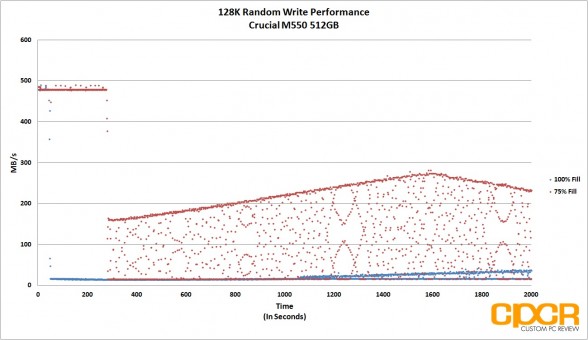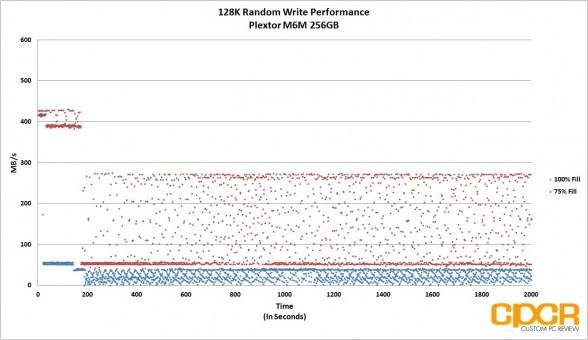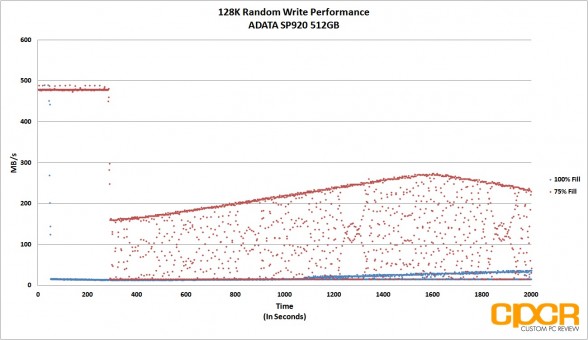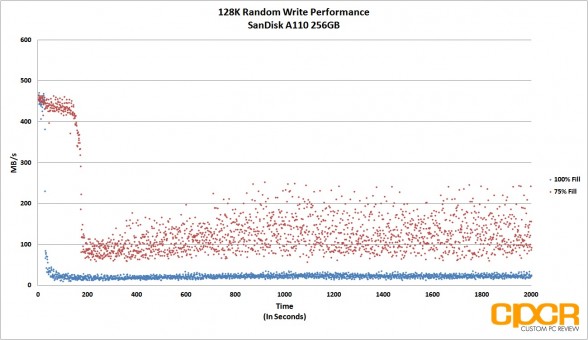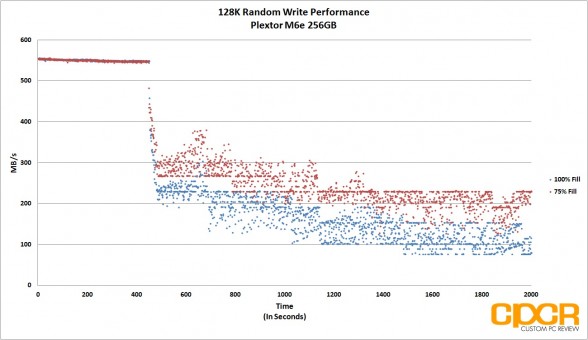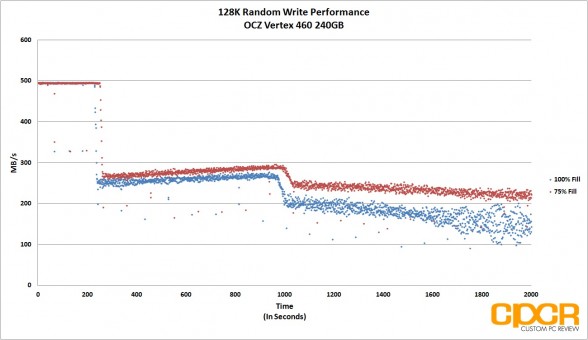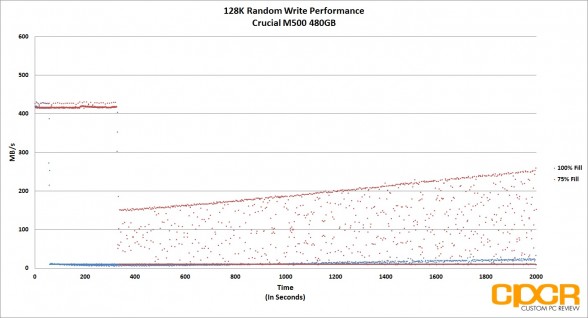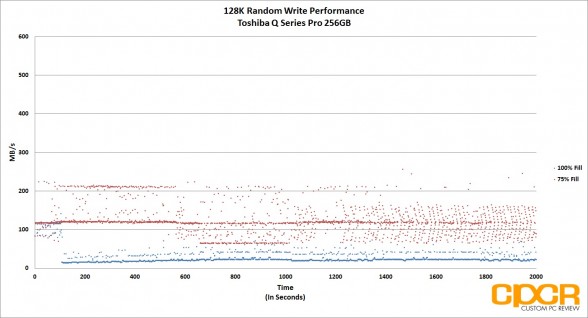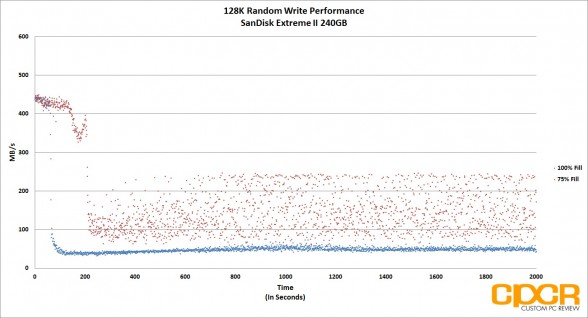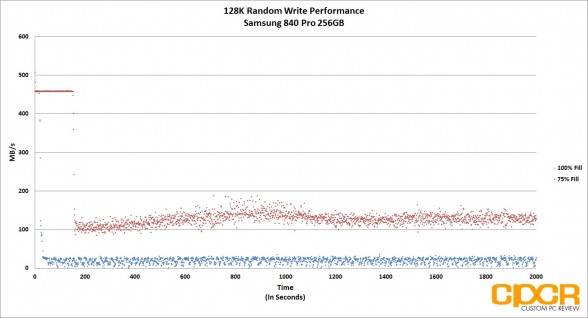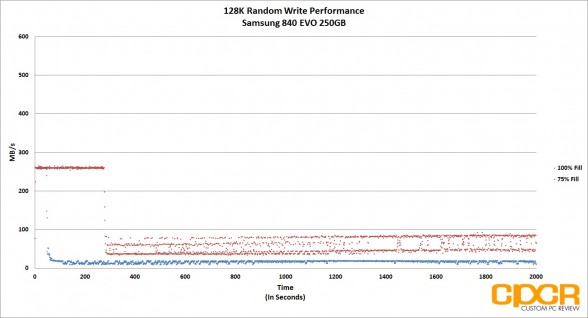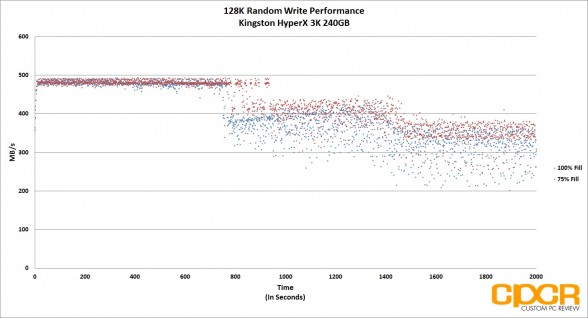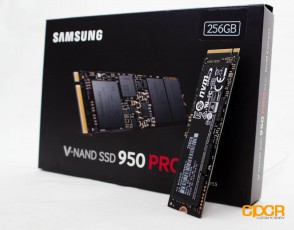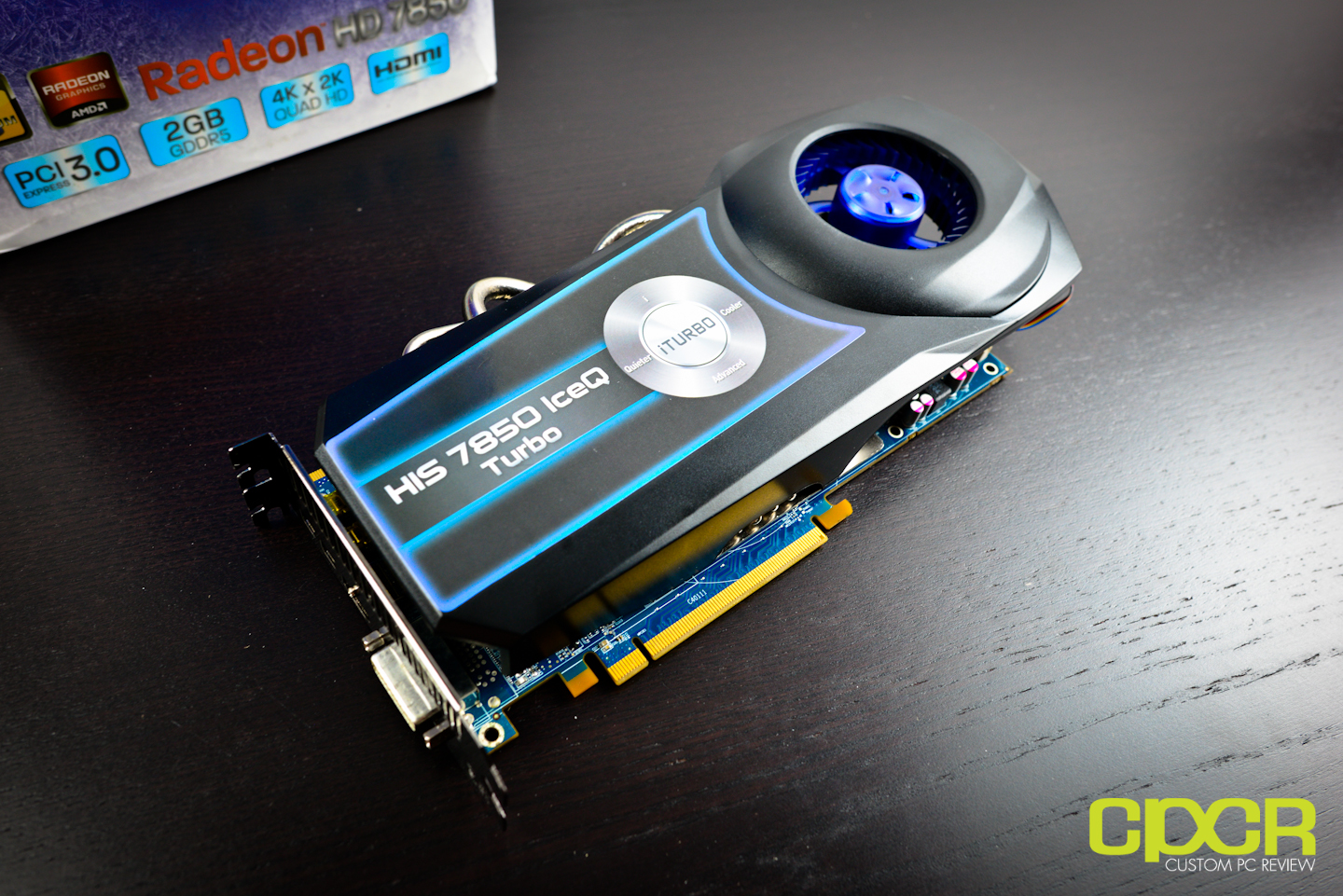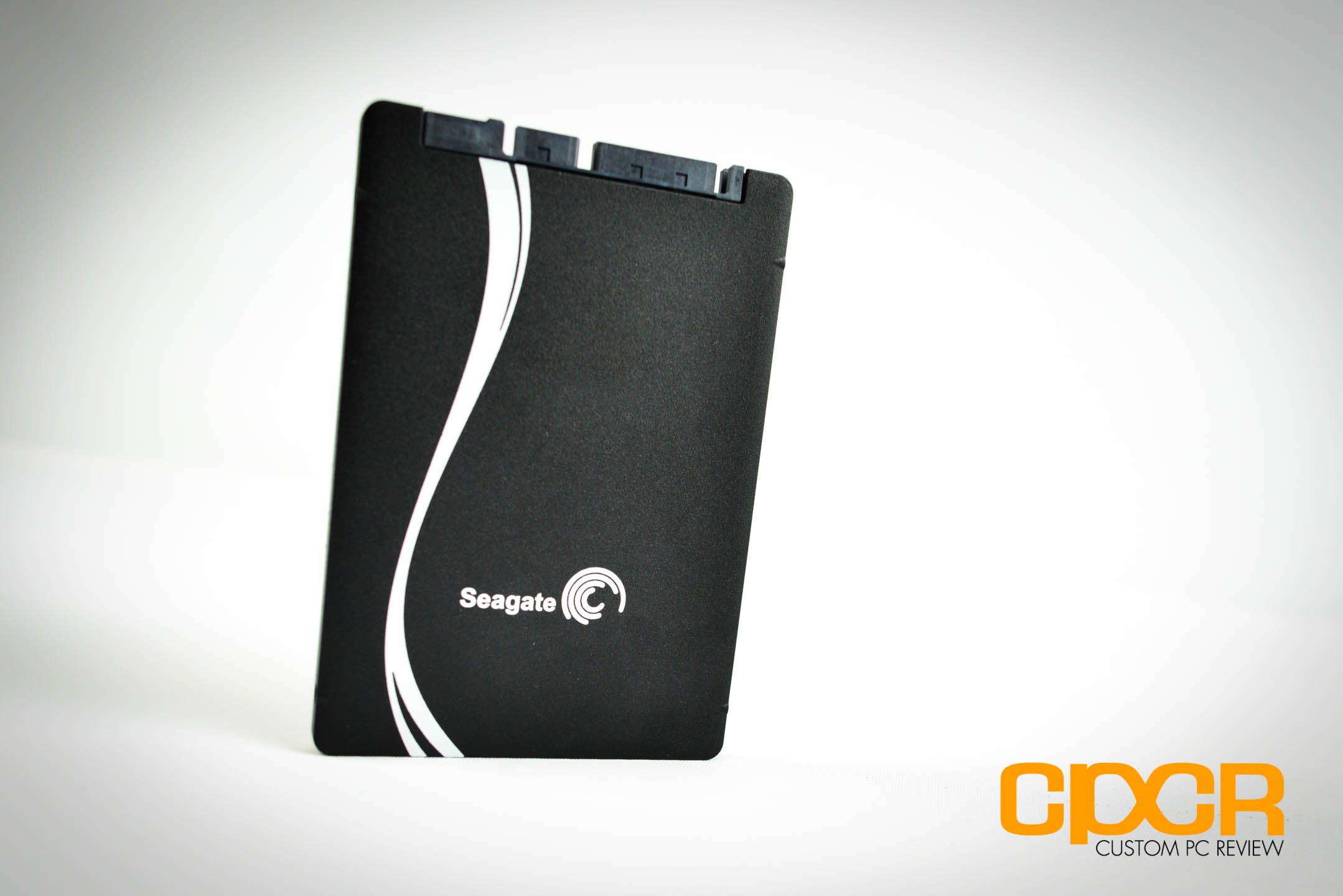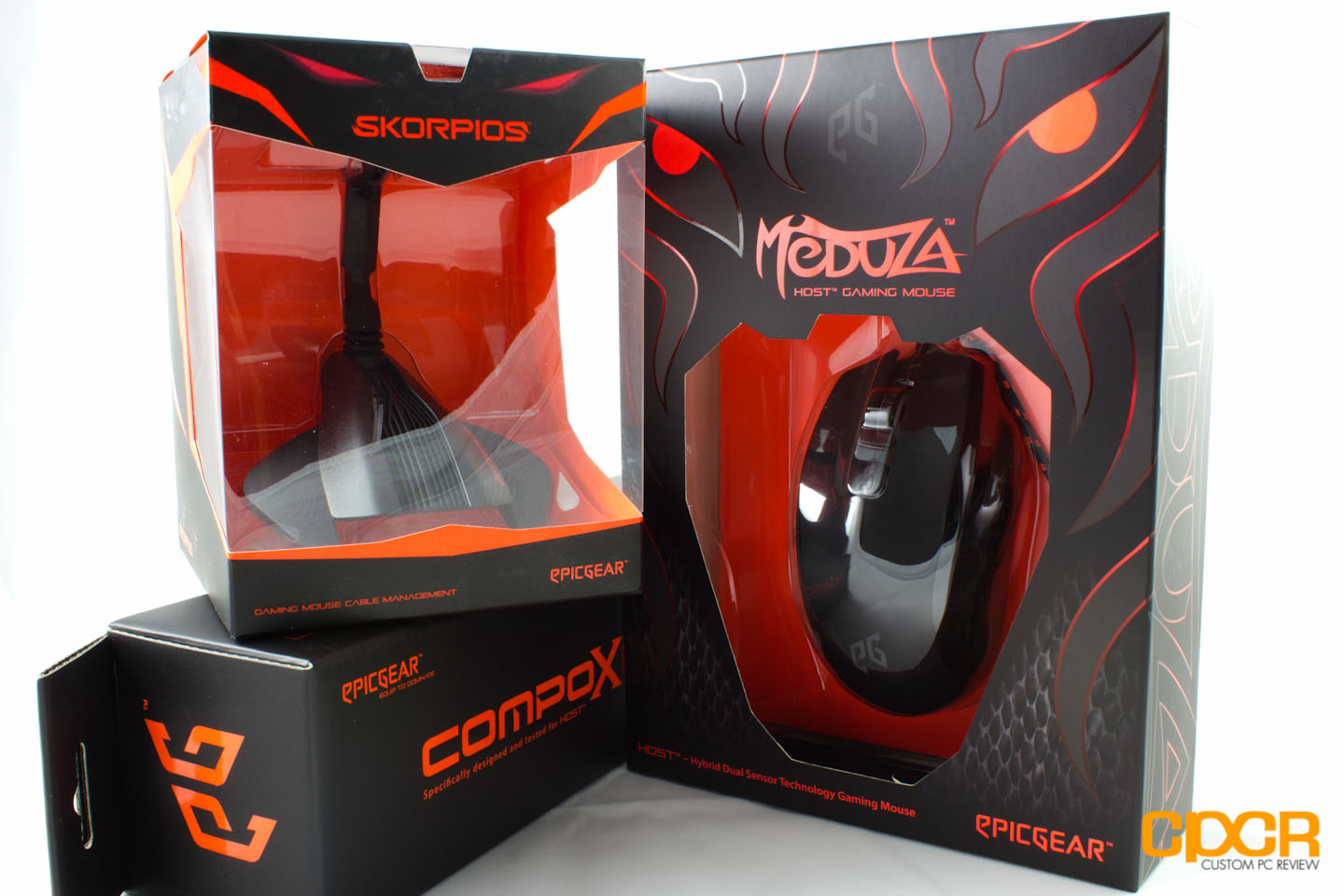[section label=1. Introduction]
Samsung’s First PCIe/NVMe Drive for the Consumer
Last year I had the opportunity to be one of the first to witness the launch of the Samsung 950 Pro NVMe SSD at Samsung’s Global SSD Summit in Seoul, South Korea. Prior to its launch, we had already tested both the AHCI and NVMe version of the OEM-oriented Samsung SM951 SSD, which was a precursor to the final retail Samsung 950 Pro.
At its launch, the Samsung 950 Pro took the top spot for the fastest consumer SSD Samsung has to offer. It’s primarily targeted towards professionals, content creators, and enthusiasts who require the highest performance possible.
Samsung SM951 NVMe Specifications
| Manufacturer | Samsung | |
|---|---|---|
| Model | 950 Pro NVMe | |
| Controller | Samsung UBX (Model #S4LN058A01) | |
| NAND | Samsung 32 Layer MLC 3D V-NAND | |
| DRAM Cache | 512MB LPDDR2 | |
| Model Number | MZVPV128HDGL-00000 | MZVPV256HDGL-00000 |
| Capacity | 256GB | 512GB |
| Sequential Reads | 2,200MB/s | 2,500MB/s |
| Sequential Writes | 900MB/s | 1,500MB/s |
| 4K Random Read | 270,000 | 300,000 |
| 4K Random Write | 85,000 | 110,000 |
| Form Factor | M.2 2280 | |
| Interface | PCIe 3.0 x4 NVMe 1.1 | |
| Warranty | 5 Year (200TBW) Limited | 5 Year (400TBW) Limited |
The Samsung 950 Pro will come in 256GB and 512GB capacities and will only be available in the M.2 2280 form factor. Under the hood, the Samsung 950 Pro is powered by Samsung’s UBX controller paired Samsung’s 32-layer MLC 3D V-NAND. This is the first time Samsung has offered a PCIe SSD in the consumer market, and the first time we’ll be testing a PCIe SSD paired with 3D V-NAND. The Samsung 950 Pro will also support NVMe 1.1 over a PCIe Gen 3 x4 interface which allows the 512GB version to reach up to 2,500MB/s sequential reads and 1,500MB/s sequential writes.
Warranty on the Samsung 950 Pro is 5 years for both the 256GB and 512GB models. The endurance for the 256GB version is rated at 200TBW while the 521GB is rated at 400TBW. While the length of the warranty is half that of the 10 year guarantee on the Samsung 850 Pro, the TBW ratings are actually higher thanks to the more reliable NAND.
Let’s take a closer look!
[section label=2. A Closer Look]
A Closer Look at the Samsung 950 Pro 256GB
Here’s a look at the Samsung 950 Pro 256GB. As we have the 256GB model, all components were able to fit on a single side of the drive. The drive is also sitting on a blacked out PCB – something you don’t typically see Samsung do for their PC components.
The controller on the Samsung 950 Pro is the exact same model as the one we’ve seen on the Samsung SM951 NVMe. They both use the ARM based Samsung UBX (Model# S4LN058A01-8030) controller.
Although Samsung had already launched their 48-layer 256 bit 3D V-NAND, they skipped it in favor of previous generation 32-layer 128 bit 3D V-NAND. Here we only have two NAND packages onboard. The Samsung 950 Pro also comes with a 512MB DRAM cache.
[section label=3. Testing Setup, Drive Info, Software]
Testing Setup
| System | CyberPowerPC Gamer Xtreme 4200 |
|---|---|
| CPU | Intel Core i7 4770K |
| Motherboard | ASUS Z87-A |
| Memory | Kingston HyperX Genesis 16GB DDR3 2133MHz |
| Graphics | Intel HD4600 Graphics |
| Storage | OCZ Vertex 4 256GB |
| Power Supply | Corsair HX650 |
| Case | HSPC High Speed Tech Station |
| Optical Drive | ASUS OEM DVD Drive |
| Expansion Cards | Bplus M2P4S M.2 PCIe x4 Adapter |
| Operating System | Windows 10 Pro 64-bit & CentOS 6.4 |
Special thanks to CyberPowerPC, Kingston, OCZ Technology and HSPC for sponsoring our test bench!
Samsung Magician
Samsung 950 Pro 256GB NVMe
As with all other Samsung consumer SSDs, the Samsung Magician software allows users to quickly monitor the status of their SSD, check performance, optimize their system, change overprovisioning settings, and much more. Here at the main status screen, it shows that we are running Samsung’s NVMe driver, which is necessary to achieve maximum performance out of the Samsung 950 Pro.
As with the Samsung SM951 we tested previously, there were no issues booting off the Samsung 950 Pro in both Windows and Linux. Users looking to purchase the Samsung 950 Pro to boot from it will however need Windows 8.1+ or the latest Linux Kernels (3.3 or later), and a motherboard that supports booting via UEFI.
[section label=4. ATTO Disk Benchmark / AS SSD / Crystal Disk Mark]
Samsung 950 Pro 256GB Performance
ATTO Disk Benchmark v2.46
ATTO Disk Benchmark is one of the industry’s oldest and most popular benchmarks for testing disk read/write speeds. This benchmarks allows read and write testing using predefined block sizes and gives us a good idea of read/write speeds with different sized files. Most SSD manufacturers prefer using this benchmark when advertising SSDs as it tests using compressible data, which tends to yield best performance.
Performance Analysis
Right off the bat, the Samsung 950 Pro 256GB is able to flex its muscle. Boasting incredible sequential read speeds of up to 2,300MB/s and sequential write speeds of up to 986MB/s, the Samsung 950 Pro is easily one of the fastest drives we’ve seen in the lab.
AS SSD Benchmark
AS SSD is a very commonly used benchmark used to measure SSD performance in sequential, 4K, 4K QD64 and latency. Tests are run using 100% incompressible data. AS SSD also outputs a final score at the conclusion of the test based off the overall performance of the drive.
Additionally, we also run AS SSD’s included compression benchmark which tests the drive using data of varying compressibility. Some SSDs such as SandForce based SSDs tend to perform significantly better when the data is compressible.
Crystal Disk Mark 3.0.1 x64
Crystal Disk Mark is another popular benchmark which allows us to measure both sequential read/write speeds as well as random read/write speeds. With this benchmark, tests can be run using both random fill (incompressible data) and 0 fill (compressible data). Realistically in typical computer usage scenarios, data being transferred will consist of a mixture of both incompressible and compressible data.
Performance Analysis
Between Crystal Disk Mark and AS SSD, we can again see some very good performance numbers. Like all Samsung drives, data compression has absolutely no effect on the drive.
[section label=5. PC Mark 7 / PC Mark 8]
Samsung 950 Pro 256GB Performance
PC Mark 7 Storage Benchmark
The PC Mark 7 storage benchmark is a trace based benchmark that evaluates the SSD under many different real world environments such as gaming, multimedia editing, etc. PC Mark 7 uses a relatively light workload, which represents a typical mainstream client storage sub-system workload.
As of June 2015, we’ve also changed our comparison charts to use the PC Mark 7 Raw Secondary Storage Score. The raw score more effectively highlights performance differences between drives as it discounts idle time between tests.
Performance Analysis
In PC Mark 7, the Samsung 950 Pro 256GB is slightly edged out by the Samsung SM951, but either way it’s still well ahead of every other SSD we’ve tested to date.
PC Mark 8 Expanded Storage Benchmark
With the introduction of PC Mark 8 2.0.228, Futuremark added the option for an Expanded Storage Benchmark which is literally designed to bring any storage system its absolute limits. The new PC Mark 8 Expanded Storage Benchmark takes around 24 hours to run and for our purposes, we’ll be using the consistency test which measures performance consistency, degradation tendency, and recovery speed of a storage system.
Consistency Test
Full details on the consistency test can be found in the PC Mark 8 Technical Guide here. For the more simplified version, the test is basically a near 24 hour, five phase benchmark – three of which we’ll be reporting on in our results below.
- Phase 1 is a precondition phase designed to “dirty” the drive with random data. The entire drive is filled twice to the capacity of the drive.
- Phase 2 is a degrade phase where the drive is hammered with tons of random data followed by a performance test run. This is done 8 times.
- Phase 3 is the steady state phase where the drive is once again hammered with tons of random data followed by a performance test run. This is done 5 times.
- Phase 4 is the recovery phase where the drive is given 5 minutes to rest followed by a performance test run. This is done 5 times.
- Phase 5 is the clean up phase where the drive is simply secure erased.
Performance Analysis
In PC Mark 8’s expanded storage test, the Samsung 950 Pro 256GB is neck and neck against the Samsung SM951 with the Samsung 850 PRO 512GB following behind.
[section label=6. FIO – FOB]
Samsung 950 Pro 256GB Performance
FIO (Flexible I/O Tester)
FIO, which stands for Flexible I/O Tester, is basically what its name says – a flexible I/O tester / I/O workload generator. Whereas all the benchmarking tools we’ve used previously are fantastic, easy to use benchmarking tools that provide a good snapshot of SSD performance, they do lack a lot of versatility, especially for more complex and in-depth operations such as custom queue depths, block sizes, test run times, etc. While the testing that follows may not pertain to typical consumer usage, they do help give us a much more in-depth look at each individual product’s strengths and weaknesses when they’re pushed to the limits.
FIO – FOB (Fresh Out of the Box) Testing
When SSDs are brand new and Fresh Out of the Box, they’re generally able to perform at or outperform their advertised speeds, but unlike traditional hard drives, performance on SSDs begin to degrade over time as they become more and more used. This is because while SSDs are new, all bits on the SSD are empty, so they can instantly be programmed with data. However, once data gets programmed in, even if it’s deleted in the filesystem the actual data will still stay programmed on the NAND itself unless some sort of garbage collection routine comes in to wipe the data. Unfortunately, in order to write new data onto “dirty” NAND, the NAND first needs to go through an erase cycle to erase the old data before a program cycle can happen to program new data, which as you may imagine takes more time than just a simple program cycle. As this only happens when writing new data onto the SSD, you’ll generally see less performance degradation on reads and more performance degradation on writes.
For our FOB testing, we run a secure erase on the SSD then run each test sans any preconditioning. This will provide us with the highest level of performance the SSD is capable of and is likely never to be seen ever again once the SSD goes into a used state.
Our testing will include 4K read testing, 4K write testing, and 4K 70/30 read/write mix testing at queue depths of 1,2,4,8,16,32,64,128,256. The reason we’ve also included 4K 70/30 read/write mix testing is simply because most real world workloads will always fall somewhere between 0% write and 100% write rather than one or the other. Since client usage is much more read heavy, we’ll be using the 70/30 read/write mix.
For general client usage, performance will fall somewhere between queue depths of 1-4 whereas servers and other enterprise applications will easily see queue depths of 32 or greater.
Performance Analysis
Here’s where things get really impressive thanks to NVMe. Just like what we saw from the Samsung SM951 NVMe drive, the Samsung 950 Pro 256GB fresh out of the box was able to reach a staggering 354,000 IOPS 4K random read as early as QD8. In 4K random writes, it was able to reach right around 100,000 IOPS, which is very good and well beyond the capabilities of any consumer SATA SSD. In mixed workloads, the Samsung 950 Pro 256GB performed very good as well, reaching just shy of 200,000 IOPS at QD32.
[section label=7. FIO – Steady State]
Samsung 950 Pro 256GB Performance
FIO – Steady State Testing
After prolonged use of an SSD, it will reach “steady state” where performance levels off to a minimum level. The FOB state is the “best case scenario” for SSD performance while “steady state” is going to be your worst. Here, we ran the exact same set of benchmarks we just completed in the FOB state; except this time around, we’ll be preconditioning the drive by filling 100% of the drive’s LBAs with two sequential passes of 128k data followed by hammering the drive for six hours with 4K random data prior to actual testing.
Performance Analysis
Moving into steady state, the Samsung 950 Pro 256GB continues to show extremely good random read performance, reaching ~278,000 IOPS at its peak. Aside from the Samsung SM951 NVMe drive, nothing gets anywhere near this ballpark. Random write performance however didn’t fare nearly as well as the drive dipped down to ~7,300 IOPS. This type of performance however, is expected as consumer drives tend to focus on reads given the read heavy workload of typical consumers. Mixed workload performance maxed out at ~22,000 IOPS which falls slightly below the pack.
One thing to note about the Samsung 950 Pro is that the drive will begin to throttle itself after a very short period of use and thermal throttling appears to happen at a significantly lower threshold than the Samsung SM951. This attributes to the lower performance seen in random writes and mixed workload testing.
[section label=”8. FIO – 4K Random Write Consistency”]
Samsung 950 Pro 256GB Performance
FIO 4K Random Write Consistency Testing
Another one of the benefits of testing with FIO is the flexibility of running consistency tests, which is one of the most important metrics when considering SSDs going forward. Looking at the results of our benchmarks such as ATTO Disk Benchmark and Crystal Disk Benchmark, we can see that practically every top tier SSD is capable of saturating SATA 6Gb/s in the FOB state. However, what really differentiates these SSDs is their ability to hold a certain level of performance even after extended periods of use.
For our consistency testing, we used a fairly standard method, which includes both filling up 75% of capacity as well as 100% capacity twice with sequential 128k data followed by the actual test itself, which is simply running 4K random writes at a queue depth of 32. By recording the IOPS every second for 2,000 seconds, we’re able to get a good look at what kind of performance can be expected when the drive is relatively new, when it’s heading towards steady state, and when it’s actually in steady state.
[tabgroup]
[/tabgroup]Performance Analysis
If there’s one thing Samsung does right more often than not, it’s write consistency and the Samsung 950 Pro definitely ranks among one of the best in that department. Few other manufacturers are able to consistently get sub-500 IOPS variance throughout the entire testing period.
[section label=”9. FIO – 4K Random Write Latency”]
Samsung 950 Pro 256GB Performance
FIO 4K Random Write Latency Testing
Another metric that’s becoming increasingly important in SSDs is its ability to keep latency low despite being subjected to a heavy workload. Even if a SSD were capable of ultra high and ultra consistent IOPS performance, if latency were high, users would still feel that the drive is slow. Ideally, SATA SSDs should always be capable of latencies under 50ms, even during heavy workloads.
For latency testing, we’ll be using the exact same testing parameters as IOPS consistency testing, except instead of recording IOPS every second, we’ll be recording latency.
[tabgroup]
[/tabgroup]Performance Analysis
Latency on the Samsung 950 Pro is phenomenal as well. Throughout the entire test, latency was kept at under 6ms.
[section label=”10. FIO – 128K Random Write”]
Samsung 950 Pro 256GB Performance
FIO 128K Random Write Consistency Testing
In addition to testing 4K random write consistency, we’ll also test for 128K random write consistency to see how well a SSD is able to hold itself to a level of performance when getting hammered with larger file transfers.
Testing methodology is very similar to our testing for 4K random write consistency. We use a fairly standard method, which includes both filling up 75% of capacity as well as 100% capacity twice with sequential 128k data followed by the actual test itself, which is running 128K random writes at a queue depth of 32. By recording the IOPS every second for 2,000 seconds, we’re able to get a good look at what kind of performance can be expected when the drive is relatively new, when it’s heading towards steady state, and when it’s actually in steady state.
[tabgroup]
[/tabgroup]Performance Analysis
One complaint we had with the Samsung SM951 was the write consistency when working with 128K data. On the Samsung 950 Pro, this seems to have been fixed as write consistency here is very, very good.
[section label=11. Conclusion]
Samsung 950 Pro 256GB Conclusions
For years, I’ve been itching to see Samsung start offering their NVMe PCIe SSDs in the consumer market, and thanks to more recent widespread adoption of platforms supporting M.2 and NVMe, I’m glad to see that Samsung finally saw a market for what would ultimately be the Samsung 950 Pro.
Performance on the Samsung 950 Pro was very good, as expected. Both sequential and random read performance is well off the charts compared to any SATA SSD, and random performance obliterates any AHCI based SSD as well. Considering the bulk of client workloads consist of reads, this is a very good thing. Writes were good as well, especially in lighter workloads, but in our testing, the Samsung 950 Pro did end up being slightly slower than Samsung’s SM951. This is attributed to the Samsung 950 Pro throttling at lower temperatures than the Samsung SM951.
| Manufacturer | Samsung | |
|---|---|---|
| Model | 950 Pro | |
| SKU | MZ-V5P256BW | MZ-V5P512BW |
| Capacity | 256GB | 512GB |
| Street Price | $198.91 | $320.79 |
| Price/GB | ~$0.78 | ~$0.63 |
| Check Price | Click Here | Click Here |
The Samsung 950 Pro 256GB can currently be found online at $198.91 which makes it ~$0.78/GB. The Samsung 950 Pro 512GB can be found online for $320.79, which is ~$0.63/GB. This is relatively expensive compared to most consumer SSDs on the market, so even for enthusiasts out there, I’d probably still recommend looking at the Samsung 850 Pro.
That said, the Samsung 950 Pro is the fastest consumer retail drive we’ve tested to date and if you’re looking for the best of the best to outfit your workstation, gaming system, or notebook, I don’t think there’s a better drive out there. Highly recommended!
Sample provided by: Samsung
Availability: Amazon

